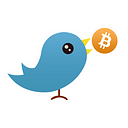How Will Cardano Change DeFi Forever?
Cardano, a top 5 cryptocurrency, is planning to launch smart contract functionality on September 12. When this happens, there will be an entirely new ecosystem of DeFi applications, and they are guaranteed to be unique from those we have already seen. This will cause the creation of new revolutionary dApps and opportunities for early adopters.
The underdog story of Cardano is well known within the cryptocurrency space: after leaving Ethereum, Charles Hoskinson created Cardano as a new smart contract platform that would deliver on the promises that Ethereum failed to live up to, namely proof of stake consensus, high transaction throughput, and low fees. After four years of development, research, and peer revision, Cardano is finally ready for their biggest update yet: the Alonzo hard fork. This hard fork will allow for smart contracts to be published and deployed on Cardano, leading to the possibility of Cardano-based tokens, NFTs, and decentralized applications.
Not only is Cardano unique in terms of its speed and high level of decentralization but also in its developer environment. Most Ethereum alternatives, such as Binance Smart Chain and Polygon, are still Ethereum Virtual Machine-based, which means they are able to run code that was meant for Ethereum with no changes needed. Smart contracts for Ethereum and EVM-based chains are written in a programming language called Solidity, which is similar to Javascript, another popular web development language. In the five or so years since Ethereum and Solidity were released, it has amassed a large developer community, and there are now countless tutorials, videos, and workshops available to help developers get started with the language.
Cardano, on the other hand, will not be immediately EVM-compatible. There are plans to add this support in the future, but it could be years before this is available. Instead, developers will have to program smart contracts in Plutus, a new and easy-to-program smart contract language, and Haskell, a programming language that has been around since 1990 but has yet to see mainstream adoption.
The use of Plutus instead of Solidity is quite significant for the growth of Cardano’s ecosystem. On one hand, it means that popular Ethereum dApps like Uniswap, Aave, and Compound, along with every other Ethereum dApp, will not be able to easily port over to Cardano. This may lead to a lack of liquidity and dApps on Cardano in its first months, which could stop some users from migrating to the platform. On the other hand, Cardano offers a fresh slate for both developers and users alike, and is guaranteed to have unique and never-before-seen projects, unlike a blockchain like Binance Smart Chain, whose EVM-compatibility means that all of its major dApps are simply clones of existing Ethereum dApps.
Though initial development may be slow on the platform, we are guaranteed to see the next generation of DeFi built on Cardano, and that may lead to the creation of the next Uniswaps and Aaves, and other applications that have not even been thought of yet. Furthermore, since Plutus offers greater ease of development and built-in security verification methods, we should see less exploits and hacks from applications, leading to less negative news that slows the rate of adoption.
Furthermore, the yield farming opportunities can be expected to be incredibly lucrative, especially immediately after the September 12 launch date. Projects with governance tokens need to incentivize users to not only use their platform but also use Cardano itself, so they will be giving away tokens for simple activities such as holding ADA, providing liquidity on their platform, or even borrowing money. This has been seen in other blockchains, like Harmony, where users can currently earn nearly 50% by staking BTC and ETH in a Sushiswap liquidity pool.
The entirely new Cardano ecosystem will give both developers and users alike the opportunity to experience an entirely fresh smart contract ecosystem, with new projects, tokens, and features. Whether or not this ecosystem is enticing enough to make Cardano and ADA as valuable as Ethereum remains to be seen, but it is certain that competition within the smart contract space is healthy, as it gives all projects the incentive to continuously develop and upgrade, leading to a better experience for everyone.
By Lincoln Murr
